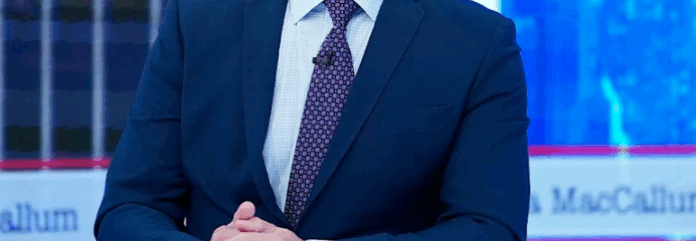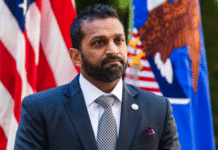California Congressman Eric Swalwell is making headlines again, this time not for his usual cable news appearances or past controversies, but for officially announcing his bid for governor of California in 2026. The Democratic lawmaker, who represents the 14th congressional district in the East Bay area, unveiled his campaign during a recent appearance on late-night television. But it’s what he said after the announcement that has people talking.
Speaking in a follow-up interview with CNN, Swalwell pitched a new election idea that raised eyebrows across the political spectrum. He said he wants Californians to be able to vote by phone.
“I want us to be able to vote by phone,” Swalwell said. “If we can do our taxes, our healthcare appointments, and our banking online, you should be able to vote by phone.” He went on to say that the technology already exists and claimed that some parts of the country are doing it already. “I want us to be a blue state that doesn’t do just a little bit better than, like, Georgia or Alabama, when it comes to voting access. I want us to max out democracy.”
🚨 JUST IN: California Rep. Eric Swalwell is being TORCHED for arguing, “I want us to be able to vote by PHONE.”
“I want us to MAX OUT democracy!” 🤯
This is the worst voting idea I’ve EVER heard. That would be an abject disaster.pic.twitter.com/zm7OXUwvO5
— Eric Daugherty (@EricLDaugh) November 22, 2025
The comment sparked immediate backlash online and drew criticism from both election experts and concerned voters. Many pointed to the obvious security and verification risks that come with phone-based voting. Currently, no state in the U.S. allows universal voting by phone for any major election, and for good reason.
Election security professionals have long warned that phone-based voting systems carry major risks. From SIM-swapping and spoofing to the challenge of verifying who is actually voting on the other end of the line, experts agree that vote-by-phone systems are vulnerable to fraud, coercion, and technical manipulation. In fact, even limited online voting pilots—like those used for military or overseas voters—are heavily restricted and require multiple forms of verification to ensure security.
As Swalwell pushes the idea of mobile voting forward, critics say the plan would remove the safeguards in place to ensure elections remain secure and trustworthy. Some believe allowing people to vote using just a phone number could lead to an increase in unverifiable ballots. Others point out that elections aren’t just about access—they’re also about maintaining confidence that every legitimate vote is counted and that no fraudulent votes are sneaking through the system.
Though Swalwell did say he wants the system to be “safe” and “secure,” he didn’t give details on how such a system would be built or what safeguards would be in place to protect voter identity, ballot secrecy, or the accuracy of vote counts.
Public reaction was swift. Social media users criticized the idea, some calling it “disastrous” and “reckless.” Critics also pointed out that opening up phone voting could lead to an environment where elections are more difficult to audit or verify.
Empty Eric Swalwell just said on CNN that he wants people to be able to vote by phone.
During Trump’s first term Swalwell’s full time job was to spread the Russia hoax and to cast doubt on the security of our elections.
Here’s Swalwell in 2019 claiming that Russia and many… pic.twitter.com/4Esomyi5rD
— MAZE (@mazemoore) November 22, 2025
So far, Swalwell has not responded to the backlash but has continued to push the message of making elections more accessible. His gubernatorial campaign is still in its early stages, and it remains unclear whether vote-by-phone will be a central part of his platform or just a passing idea.
As the 2026 California governor’s race takes shape, Swalwell’s entry is likely to draw attention from both the left and right. California, a deep blue state, has often led the way on election reform, but it also faces questions about how far it’s willing to go when it comes to expanding access versus protecting election security.
For now, Swalwell’s proposal to let Californians vote by phone is getting national attention — and not necessarily the kind his campaign was hoping for.







